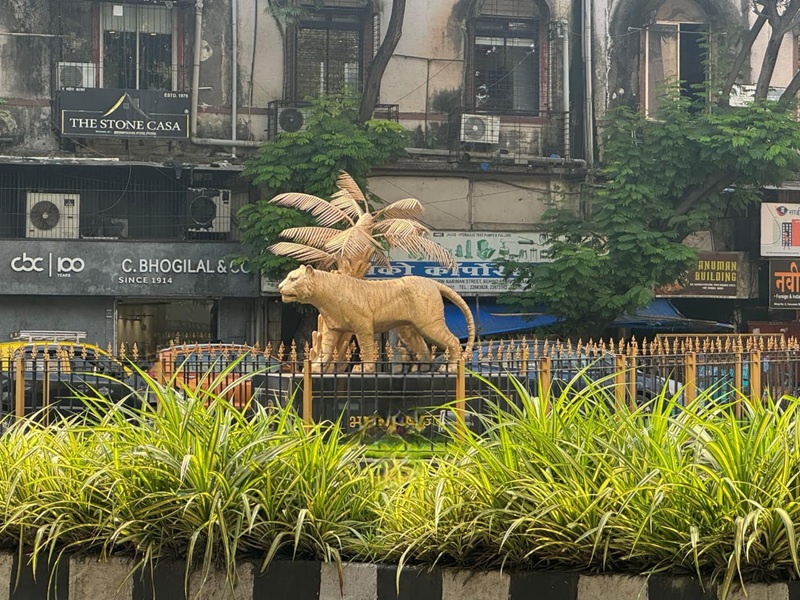.png)

Gurumurthy, ex-central banker and a Wharton alum, managed the rupee and forex reserves, government debt and played a key role in drafting India's Financial Stability Reports.
October 26, 2025 at 5:05 AM IST
Economists are not supposed to go viral. Their world runs on data tables, regression models, and prose so dry that even ChatGPT begs for a water break. Yet, in a rare turn of events, India’s financial world recently witnessed something that felt closer to a reality show than a research seminar: a social-media spat between economists from the Reserve Bank of India and the State Bank of India. To be fair, but for some mainstream media intervention with an eyepopper, the social media discussions would have died a decent death, and the entire episode wouldn’t have merited such a serious debate.
Coming back to the issue, it was an accusation of plagiarism, of copying parts of an RBI research paper, word for word, without attribution. The SBI economists denied the charge, insisting their work was based on publicly available data and their own interpretation.
It could have ended there, with a polite clarification and a footnote. In fact, it could have been sorted out privately. But in the age of performative outrage, even economists now come with hashtags. Suddenly, a world usually dominated by yield curves and repo rates was buzzing with accusations, screenshots, and indignation.
It was, in short, the day economics went prime-time.
But here’s the funnier part. Anyone who has read enough Indian research reports knows that plagiarism is the least of our aesthetic worries. Many of these documents already read like unintentional fiction, sprinkled with lofty quotations from everyone from Tagore to Tolstoy, Nietzsche to Nehru. You can be halfway through a paragraph on inflation differentials and suddenly stumble upon, “As Shakespeare once said, brevity is the soul of wit.”
Yes, but not in a 34-page PDF on current account deficits.
Perhaps this is the secret ambition of India’s economists: to be taken as much for stylists as for scientists. There is always a “deep insight” borrowed from a 19th-century philosopher, followed by three pages of acronyms. It’s as though the world of macroeconomic research decided that if the numbers don’t move the reader, maybe the metaphors will.
And now, in this new “copy-paste” controversy, we have a collision of both worlds: a discipline obsessed with originality of thought, and a presentation style that sometimes feels like a literary remix.
Substance Deficit
We live in a time when presentation often outruns purpose. Every report must trend, every insight must have a “hook,” every policy argument must be shareable. In this noisy world, even sober economists have learned to decorate their analyses with Instagram-ready flourishes. “Liquidity is like poetry,” one might begin; “it flows only when the sentiment is right.”
That may sound clever, but the citizens waiting for affordable credit or jobs aren’t impressed. While economists debate over who wrote which sentence, large section of Indians may be struggling to pay its bills, manage rent hikes, and keep hope alive.
Land of Paradoxes
India today faces a paradox.
We have one of the world’s fastest-growing economies, yet millions of young people are unable to find stable work. We celebrate digital progress while farmers still rely on uncertain monsoons. And even as we debate the nuances of GDP methodology, the average family debates whether to skip fruit this week.
Against that backdrop, the RBI–SBI tussle over research attribution feels less like a scandal and more like a theatre - a small quarrel in an auditorium where the lights are flickering and the audience is slowly leaving.
Still, there’s a valuable takeaway hidden in the comic relief. Intellectual integrity matters. Citations matter. But so does relevance. Research, especially from institutions that shape national policy, must serve a purpose beyond professional prestige. The ultimate audience isn’t a rival economist; it’s the citizen whose life is shaped by the policies those reports influence.
Maybe this episode will prompt a bit of reflection and perhaps the next generation of economists will spend less time polishing literary quotes and more time explaining real trade-offs - jobs, inequality, climate risks, and affordability, in language the public can understand.
As for the rest of us, we can only smile at the irony. The central question of economics has always been about scarcity: how to make the most of limited resources. Maybe that applies to words, too. A little less decoration, a little more direction, and we might just rediscover the substam nnce beneath the syntax.
Until then, expect more poetic PDFs, meaningless public spats, a few more misplaced quotes, and, every now and then, another economist trending for the wrong reasons. In a country where everything can go viral except real issues, at least some economists are keeping us entertained.




